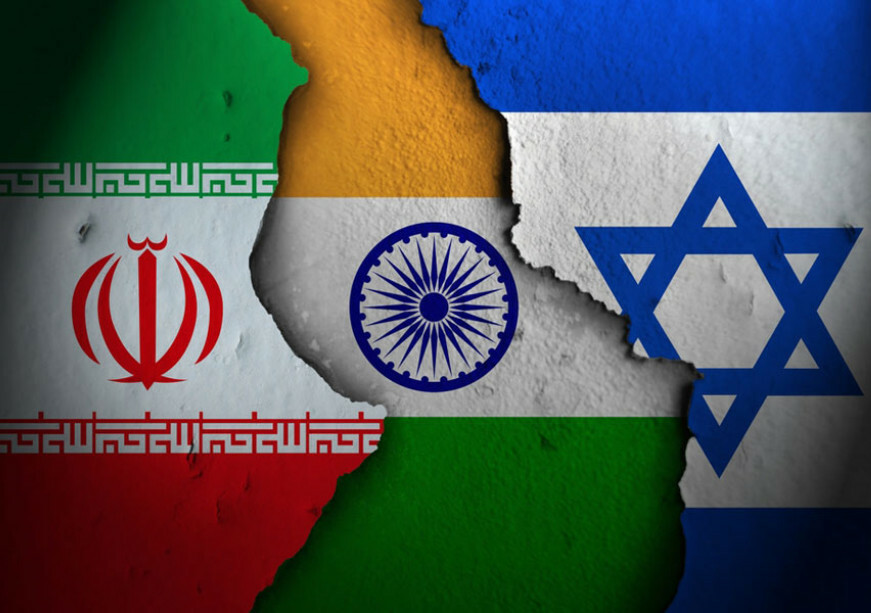
Israel-Iran crisis threatens to impact India and the world
NEW DELHI : The growing conflicts between Israel and Iran have raised the spectre of an all-out military crisis that threatens to further push a volatile West Asia into deeper problem, with grave economic and geopolitical fallouts for the rest of the world too. This also has significant ramifications for the Indian economy due to the impact on global oil prices, trade and regional stability.
India’s External Affairs Minister Dr. S. Jaishankar has emphasised on the need to avoid civilian casualties and New Delhi’s willingness to engage in the matter through discussions and diplomacy. “Don’t underestimate the importance of communication in difficult times. If there are things to be said and passed on and back, I think those are all contributions that we can make, and we do,” Jaishankar recently said during an interaction tank in Washington.
As US sanctions impacted oil shipments from Iran, India’s trade with the country shrank to $2.5 billion in FY24 compared with $26.5 billion a decade ago.
With Israel, however, India’s exports grew 21 percent, while imports shrank 15 percent during this period. However, the nature of trade has changed slightly. Despite shrinking imports, India’s arms and ammunition imports have risen 100X, from around $1 million in FY13 to $104 million in FY24. Similarly, its aircraft, spacecraft, and parts imports have jumped from $31.8 million to $193 million in FY24.
This is being seen as a rare offer from India to mediate in a conflict, especially in West Asia. It underlines the strategic and economic importance of the region for New Delhi, which is bracing for various potential impacts should the situation worsen.
Iran’s missile retaliation on Israel on October 1 sent crude oil prices surging on various international indices and causing anxiety for India, which imports about 85 per cent of its crude requirements, mostly from West Asia. Brent crude prices crossed the $75 a barrel mark. India’s purchases are linked to the Brent scale and any spike has a significant impact on the country’s purchases.
The rise in crude oil prices has already crossed the average prices of Indian purchases from sub-$73 a barrel to $75 and a few cents in a single day. The Reserve Bank of India (RBI) had projected crude oil prices for the country’s basket at $85 per barrel in FY25. The basket witnessed average crude oil prices above $85 a barrel in the first four months of the year.
The drop in oil prices in the last two months was used towards calming down average prices in order to reduce pressure on public expenditures. The worry for India, both the government and the stock markets, is the price fallout of any disruption in Iran’s oil supply lines or damage to its oil assets.
According to a Morgan Stanley report, a $10 per barrel increase can impact consumer prices by 0.2 to 1.4 percentage points across Asian economies. India is in the middle, with consumer price index (CPI) rising up to 0.5 percentage points for each $10 per barrel increase in oil prices. The surge in prices directly impacts India’s import bill, worsening the trade deficit and putting pressure on the rupee. A weaker rupee will make imports costlier, adding to inflationary pressures.
The good news is that India is maintaining decent forex reserves of $692.8 billion (week ending September 20). The RBI, from time to time, intervenes in the market through liquidity management, including through the selling of dollars, to prevent a steep depreciation in the rupee. Unlike other major economies like the US and China, India isn’t trade-surplus. Forex is earned because of the influx of the hot money invested by foreign institutions. The US Federal Reserve’s recent rate cuts and China’s continuing rally in response to domestic stimulus are already pushing foreign funds to square off their India position. So, trouble on the import bill will add to the woes.
Trade lines
The barrage of Iranian missiles on Israel was heard the loudest in the boardrooms of shipping companies. India’s economic health depends extensively on the safety of trade routes passing through the Gulf of Oman, Strait of Hormuz, Persian Gulf and a safe shipping passage in the Red Sea to be able to cross the Suez Canal and enter the European markets.
The prospect of an Israel-Iran war puts these trade lines at risk. Prolonged turbulence and continuing US sanctions on Iran have already delayed the critical India-Iran Chabahar Port project that seeks to connect Central Asian markets. Any escalation in conflict will also delay another ambitious trade route project, the India-Middle East-Europe Corridor (IMEEC). The corridor had received a thumbs-up from all stakeholders on the sidelines of the G-20 Summit in New Delhi last year.

